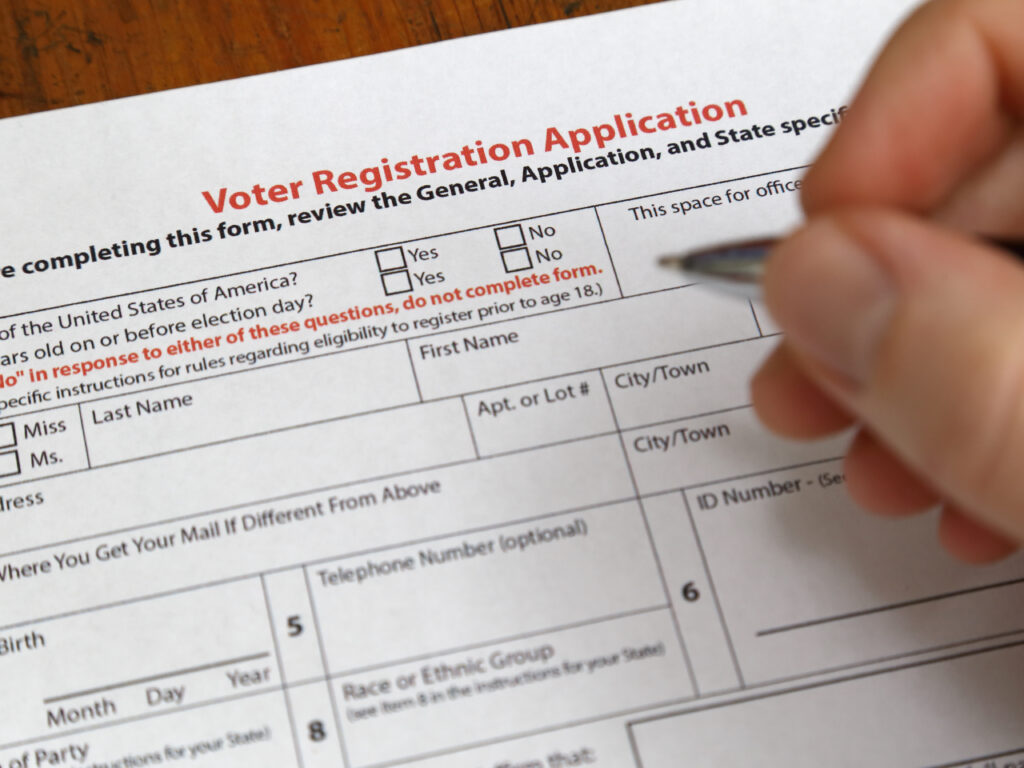New Mexicans With Prior Felony Convictions Will Be Able to Vote In November

New Mexico residents with past felony convictions who were wrongly denied voter registration will be able to register to vote for the November election, thanks to an agreed upon court order between pro-voting groups and state officials.
In 2023, Gov. Michelle Lujan Grisham (D) signed the New Mexico Voting Rights Act (NMVRA), which among numerous other pro-voting measures, restored the voting rights to residents with felony convictions upon release from prison — impacting nearly 11,000 people on parole or probation.
But according to a lawsuit filed late last month by the human rights advocacy group Millions for Prisoners New Mexico, the state hasn’t adequately facilitated voter registration for eligible people. The lawsuit alleged that the head of the New Mexico Corrections Department never provided Secretary of State Maggie Toulouse Oliver (D) an updated list of incarcerated people, which prevented her from carrying out registering eligible people on probation or parole to vote in the upcoming election. Because of the lack of accurate data, numerous eligible New Mexico residents were denied their voting registration because their probation or parole status couldn’t be verified.
Both parties in the lawsuit reached an agreement Oct. 8, with state officials agreeing to update the records of New Mexico residents with past felony convictions who, under the NMVRA, are now eligible to vote. Those who were wrongly denied voter registration will be reprocessed and registered to vote in the November election, according to the order.
“Our democracy works best when all voters have the opportunity to participate, regardless of whether they have a past felony conviction,” Blair Bowie, the director of Campaign Legal Center’s Restore Your Vote initiative, said in a statement. “This order is an important step toward making sure every American makes their voice heard in the 2024 election.”